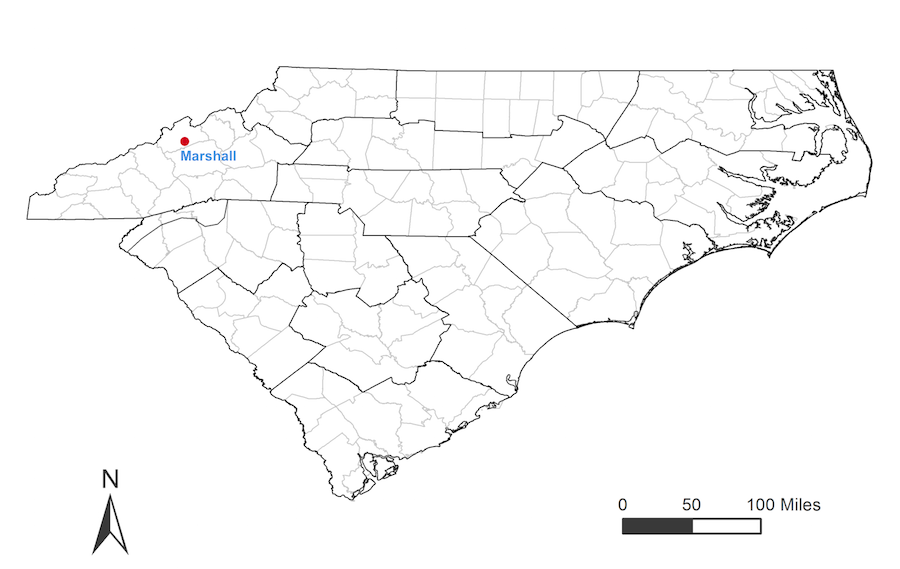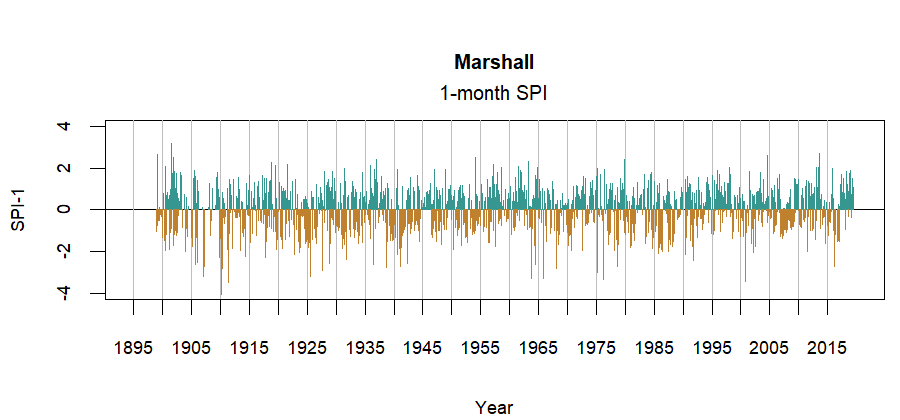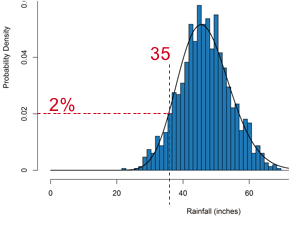Marshall Madison County | NC Climate Division 1 | ID# 315356 ◼ ◼ ◼
Marshall
Location: 35.8 °N, 82.67 °W
Elevation: 2000 ft.
Record incorporates data from the following stations: MARSHALL 2 NE, MARSHALL

Click on legend items to hide or reveal data ![]()
Marshall
Average Monthly Precipitation (in inches)
Data Source: Period of Record — Applied Climate Information System (ACIS); Climate Normals (if available) — NOAA’s National Centers for Environmental Information (NCEI)
Hover over squares for precipitation amounts ![]()
Marshall
Historical Monthly Precipitation (in inches)
(Months with missing data are coded 9999)
Data Source: Applied Climate Information System (ACIS)
Click on legend items to hide or reveal data ![]()
Marshall
Seasonal Precipitation (in inches)
* Data Missing: Jan, Mar 1985; Mar, May, Nov 1986; Jan, Mar, Apr, May, Dec 1988; Jan, Apr, May, Dec 1989; Jan, Feb, Mar, Apr 1990; Jan, Feb, Nov 1991; Dec 1992; Dec 1993; Feb, Dec 1995; May, Aug, Nov 1997; Feb, Jul, Nov 1998; Jan 2004; Jan 2005; Jan 2007; Dec 2008; Jan 2009; Dec 2010; Jan 2014; Jul, Aug 2016; Jun 2017; Feb 2018.
Data Source: Applied Climate Information System (ACIS)
Click on legend label to hide and reveal lines connecting data
hover over points for more info
![]()
Marshall
Maximum Event Precipitation since 1980 (in inches)
Note: Some duration periods may overlap; the
longest duration appears on top.
Years with missing data are coded -9999.
Click on column headers to sort data
![]()
Maximun Event Precipitation for the Historic Record (in inches)
Data Source: Applied Climate Information System (ACIS)
1-Month 2-Month 3-Month 6-Month 9-Month 12-Month 24-Month All Multi-Duration

Data Source: Applied Climate Information System (ACIS)
12-month 18-month 24-month 36-month 48-month 60-month

Data Source: Applied Climate Information System (ACIS)



 This chart shows the range and probability of specific precipitation totals. For example, there is about a 2% chance of getting just 35 inches of precipitation in a year. But if you look at the distribution of rainfall (historical rainfall amounts are shown by the blue bars, while the line graph smooths out this distribution), you can see that most years you are likely to get more precipitation than 35 inches.
This chart shows the range and probability of specific precipitation totals. For example, there is about a 2% chance of getting just 35 inches of precipitation in a year. But if you look at the distribution of rainfall (historical rainfall amounts are shown by the blue bars, while the line graph smooths out this distribution), you can see that most years you are likely to get more precipitation than 35 inches.